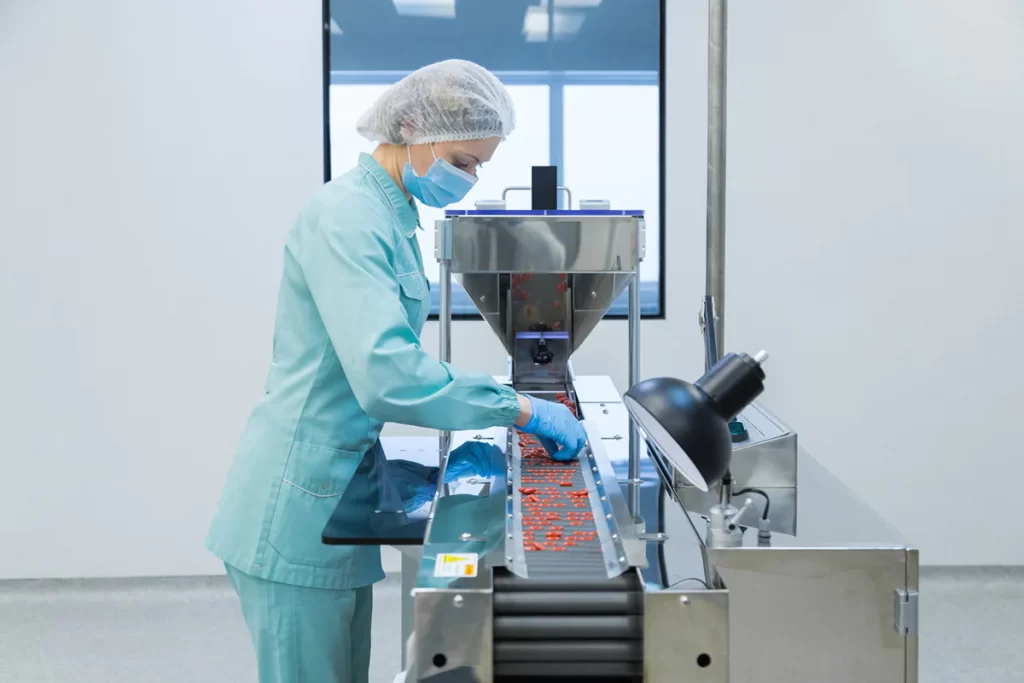
COVID-19 has vastly changed our world, placing unprecedented strain on individuals and businesses, and compelling us to find creative solutions to monumental challenges.
Over the past month, we’ve explored the pandemic’s effect on the food and beverage industry, the paper industry, and medical device manufacturing. Today, we’re taking a closer look at the pharmaceutical industry and its response to these extraordinary times.
How Has the Pharmaceutical Industry Been Affected?
Economists have said that we are facing the biggest recession since The Great Depression. While every industry has felt an impact, so far, the pharmaceutical industry has seen comparatively minimal damage. Morningstar lowered their fair value estimates of Big Pharma and Big Biotech by almost 2%, which is much less than other stocks have declined.
The reason for sustained viability in this industry is largely due to continued or increased demand for prescription medication during this health crisis. Even so, experts project that the economic slowdown will likely cause a 4.6% hit to 2020 global GDP, which may well disrupt the use of vaccines, drugs, and consumer healthcare products. The high demand for most medications, however, should largely offset any recessionary impact.
Clinical Trial Disruptions
There have been disruptions to clinical drug trials and the development of new drugs. For example, Onno van de Stolpe, the CEO of Belgian drug maker Galapagos recently announced a decision to pause on the development of filgotinib, a medication to treat autoimmune disorders like rheumatoid arthritis and Crohn’s Disease .
“We decided to pause enrollment into the filgo trials (ex UC) in order to help protect patient safety,” van de Stolpe tweeted. “I firmly believe that we will weather this storm and come out stronger. We are more determined than ever in our unwavering ambition to bring innovation to patients. Stay safe.”
Representatives from pharmaceutical company Eli Lilly stated that economic repercussions from COVID-19 would delay the start of any new clinical trials and suspend enrollment in most ongoing studies. Lilly is currently sponsoring 86 clinical trials that are enrolling patients with another 78 studies that are active but not recruiting patients.
Pharmaceutical Supply Chain
The U.S. drug supply chain is already fragile, even during the best of times. Shortages are a common occurrence, and the pandemic has disrupted the system even further. There aren’t typically as many shortages with brand name drugs, but the generic drug supply chain is tenuous. Given that nearly 90% of the drug supply in the U.S. is generic, it’s easy to see how an interruption in production would become a major issue. In the United States, the average drug shortage can last 14 months or even sometimes several years.
Pandemic panic has caused drug shortages in other ways as well. For example, there has recently been a shortage of hydroxychloroquine due to scientifically unsubstantiated claims that it could treat COVID-19. Although there is no clinical evidence yet to support that theory, people have been hoarding the medication nonetheless, leading to shortages that are impacting patients who need it to treat chronic conditions like lupus and rheumatoid arthritis.
Many have argued that the COVID-19 pandemic is simply exposing the weaknesses already prevalent in the drug supply chain.”Most of the current technological capabilities anchored upon ERP and planning systems are simply not equipped to help enable resilient supply chains of the future,” said Madhav Durbha, group vice president, industry strategy. “Advanced algorithms powered by artificial intelligence can help organizations better design their supply chains to build resiliency and monitor for risks. The new age digital platforms certainly have a role to play here.”
To reduce drug shortages, there are manufacturers can take certain steps, like decentralizing supply chains, for example. Thatway, if a problem arises, it won’t disrupt the entire process of production. The government can also extend expiration dates when appropriate.
A Race to a Vaccine
It’s no secret that the pharmaceutical industry does not have the best reputation in the public eye. Given that The New York Times recently published a piece called “Drug Companies Will Make a Killing from Coronavirus” and The Intercept published a piece called “How Big Pharma Will Profit from the Coronavirus,” it’s clear that many take a skeptical view of pharmaceutical companies and their intentions, even in the midst of a pandemic. These same companies are also responsible for major medical breakthroughs which are enormously beneficial on a large scale. There is a crucial balance here of profitability, yes, but also extraordinary helpfulness toward a greater good.
As Rich Lowry of the New York Post argues, the pharmaceutical industry is our best hope for putting an end to the pandemic that has wreaked so much havoc on our economy. He states, “This crisis brings home the incalculable value of a world-class pharmaceutical sector. We can continue to shelter in place — or hope that the ‘crooks’ pursuing breakthrough drugs and treatments make the current disruptions in our national life completely unnecessary.”
The pharmaceutical industry’s proactive and tenacious response to this public health crisis may be causing a shift in public perception of some companies, as demonstrated in a recent poll by APCO Worldwide, a global communications and crisis-management consultancy. Jack Kalavritinos of RealClear Politics states, “Our new APCO Insight data suggests the public perceives companies operating in the United States are more likely to create breakthrough therapies (58%) than are companies in other countries. Americans have an improved image of pharmaceutical companies.”
It will be interesting to assess the long-term effects that the COVID-19 response will have on the pharmaceutical industry and how the public opinion of the industry may shift further in the upcoming months. Leaders and medical professionals in the pharmaceutical industry must meanwhile continue the quest to find a vaccine and treatments for COVID-19, in hopes of curbing the public health crisis as soon as possible.


